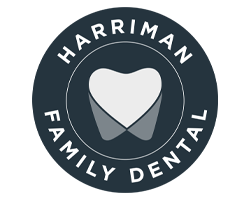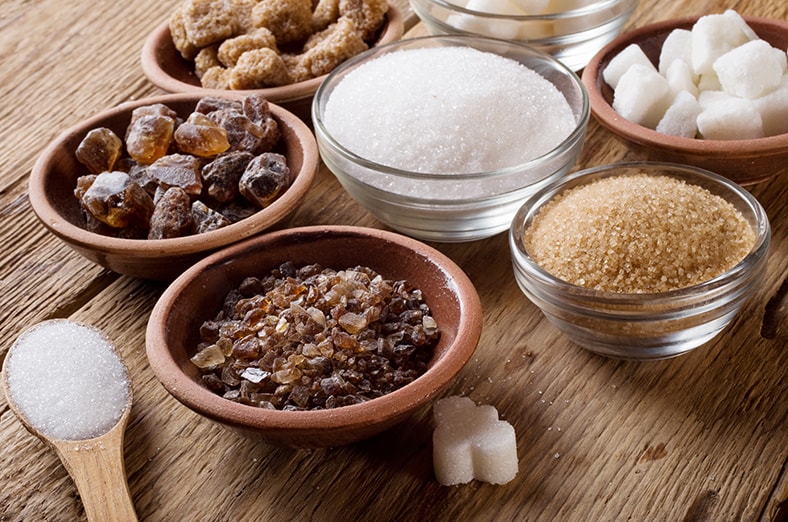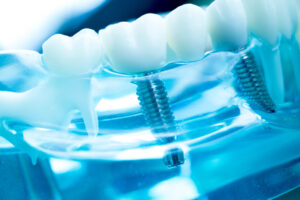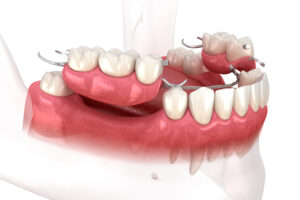We know that sugar is bad for our teeth, but does this mean that all sugars lead to cavities, or are some natural sugars safe to eat?
While added sugars are the worst for your teeth, all sugars can contribute to tooth decay. It’s especially important not to be fooled into thinking that some supposedly “natural” sugars are safe to eat.
All Sugars Are Bad for Your Teeth
What makes sugars bad for your teeth? Sugar feeds oral bacteria. When these oral bacteria feed on sugar, they excrete acid that damages our teeth. In addition, they multiply, making more bacteria to produce more acid, and, when conditions are right, they produce a sticky film that surrounds, protects, and allows them to cling to your teeth.
The bad news is that all pretty much all sugars can feed oral bacteria. This includes sucrose (table sugar), glucose (grain sugar), fructose (fruit sugar), and lactose (milk sugar). So, no matter the source of sugar in your diet, it can potentially cause cavities. Oral bacteria can also break down some other types of carbohydrates into sugar, but it doesn’t yield as much energy, so they don’t grow as fast when exposed to more complex carbohydrates. And damaging bacteria are less likely to grow.
Why Added Sugars Are Worse
However, it’s important to understand that foods with added sugars are still worse for your teeth than foods with natural sugars (like fruit and milk). That’s because adding sugar increases the proportion of sugar in foods, making the food more likely to feed damaging oral bacteria.
In natural foods, the sugars are in balance with liquids that wash away the sugars, proteins that feed other types of bacteria, and fiber that forces us to chew, stimulating saliva production to wash away sugars and kill bacteria.
Added sugars are also often modified in form to make them stickier. In caramel, for example, the sugar is turned into a polymer that can cling to your teeth, making it a food source for bacteria that can last for hours.
Added sugars are also separated from natural compounds like antioxidants that can help suppress oral bacteria.
And don’t forget: the dangers of added sugars also apply when natural foods are processed to remove vital components. Think fruit juice, where fiber is removed, or dried fruit, where liquid is removed, making the fruit stickier.
Don’t Be Fooled By “Natural” Sugars
Sometimes, people will advertise that natural sugars are better for you than other types of sugars. For example, they will say that agave nectar or maple syrup or honey is safer to eat. Or that high fructose corn syrup makes things more damaging than sucrose. This is largely not true.
Remember, agave nectar and maple syrup are just concentrated sugar syrups. They aren’t really natural products–they’re processed. And honey is also processed, it’s just processed by an organism other than humans. People will argue that the introduction of trace elements from bees makes honey healthier, but these are so minimal that it’s unlikely to have a significant impact.
Sucrose may actually be worse for your teeth than high fructose corn syrup. First, it’s important to remember that high fructose corn syrup isn’t that much different from sucrose. High fructose corn syrup is a blend of 55% fructose and 45% glucose, while sucrose is a 50-50 combination of fructose and glucose, with the two molecules chemically bonded together. This chemical bond matters, because bacteria like Streptococcus mutans can use it to make the sticky polysaccharide that they use to cling to your teeth as plaque. They can’t do this with just fructose or glucose.
Cut Down on Sugars and See the Dentist
If you are looking to reduce your risk of cavities, there are several things you can do. One is to cut down on your consumption of sugars, especially added sugars. Make sure you are brushing and flossing adequately. And, of course, see your dentist for regular checkups to monitor the growth of cavities.
With good prevention and regular checkups, you may be able to avoid cavities for life. If you are looking for a dentist in Orange County, NY to help you achieve that goal, please call (845) 783-6466 today for an appointment at Harriman Family Dental in Harriman.



